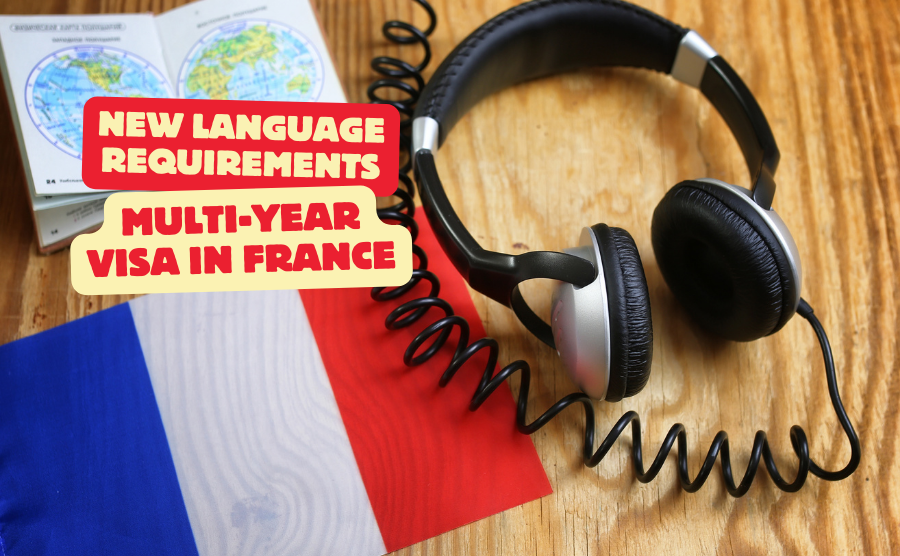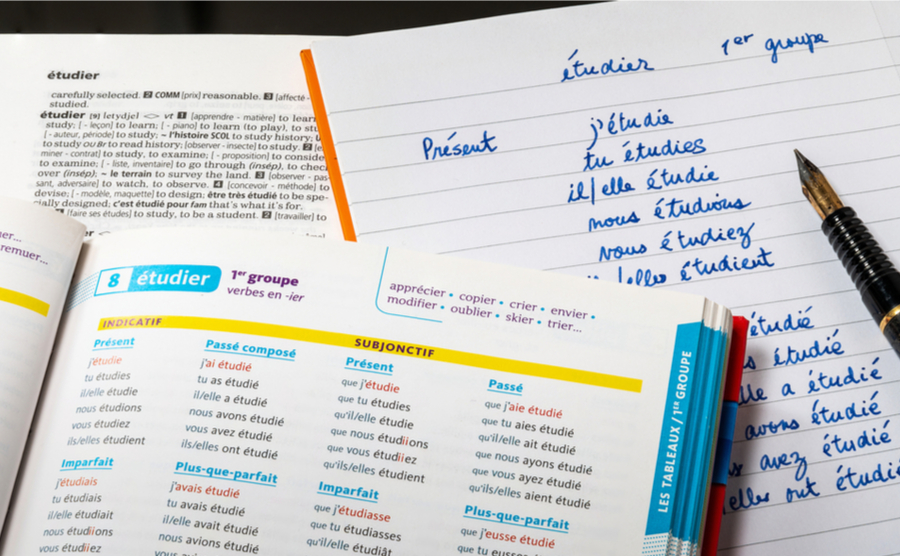France is to introduce stricter language requirements for multi-year residency permits. This rule is due to go into effect by January 1, 2026.
This topic has caused quite a lot of confusion for non-French citizens who want to reside in France long-term. In this article, we’ll explain what’s changed and how to go about the application process.
First, let’s look at the most common visa route for those looking to live in France…
Enquire with a visa specialist today

A new law requires a B1 language certificate for the multi-years visa
Find homes in France via our property portal.
The long-stay visa
The French long-stay visa is designed for non-EU/EEA citizens looking to stay in France for up to one year and more than three months at a time. Its main purpose is to allow tourism, students, pensioners, and relatives of French nationals to reside in France legally.
The long-stay visa is also called a type D visa. The current application process involves applying for a visa in your home country, then when you move to France, you have to apply for the CPAM, which is like your social security number or NHS equivalent. You can apply for CPAM after 90 days in France.
If you want to live in France permanently, you might apply for a residence permit (carte de séjour). This is available once you’ve been in France for 9 months, but you must act no later than one month before your visa expiry.
We spoke to Fabien Pelissier, of Fab French Insurance and he said, “A visa is not something you can get in France. It’s only doable abroad (in your home country). If you wish to renew a visa, you would have to reapply from your country of residence.”
Alternatively, you can apply for a new visa or status, should the objective of your visit to France have changed, E.g. someone on the visitor visa (non-working) may wish to convert to a carte de séjour étudiante to study in France. However, if the préfecture denies you the permit, you will have to go back to your home country to reapply for another visa. They could also extend your visa to give you time to fix your application (if you’re not yet part of the French social security system for example).
New requirements for French residency permits
As of January 2024, new requirements for the French residency permit were voted in, to control immigration and improve integration.
The law states that ‘Applicants for certain multi-year residence permits (e.g., “employee” or “private and family life”) will need to prove at least an A2 level of French to be eligible for these statuses.’
Fabien points out, that this is only for the multi-year residence permit, therefore just the “carte de resident,” but not the visa and not the one-year permit.
This does not change anything for first-time applicants of the long-stay visa.

Could it be time to brush up on your French?
Who does this affect?
Fabien points out that a small number of people will be impacted but it does apply to:
- Spouses of French citizens
- Parents of French children
- Family reunion or spouse of a carte de résident holder (when one spouse comes to France and has a carte de resident (usually after 5+ years) and the other spouse joins them)
If you fall into one of these categories, the level of French proficiency required is A2 for the multi-years permit.
The permanent permit is a 10-year permit and requires a B1 level proficiency.
The new ruling does not apply to those aged 65 or over. So, if you start the relocation process at 60 (or older), it’s unlikely you will be impacted.
Fabien advises, ‘In the worst-case scenario that you are under 65, take the test and happen to fail it, it just means that your carte de séjour will be renewed for one year, rather than transitioning to the multi-year visa. It effectively postpones your multi-year visa, and you’ll have another year to improve your French. So don’t panic, you won’t be kicked out of the country if you fail!’
For guidance on your French visa application, we recommend getting in touch with Fabien and his team today.
Fill out this short form to be put in touch with the Fab French team.
Read more about who it applies to and the level of French required from 2026.
You might also like:










